Twilight Zone: The Movie (1983)
“Hey — you wanna see something really scary?”
|
Synopsis: |
|
Genres, Themes, Actors, and Directors:
Response to Peary’s Review: Peary accurately notes how disappointing Spielberg’s “Kick the Can” is on every level, and laments that the ending of “It’s a Good Life” has turned moralistic, with “even a boy… capable of terrible deeds want[ing] help, need[ing] sincere friendship, and prefer[ing] guidance… to being a spoiled brat.” He argues that the final episode — in which “John Lithgow takes over William Shatner’s role” — is the best, and that it works well to have Lithgow playing a “sane man” who “no one will believe” rather than a “former mental patient.” Finally, Peary discusses the tragedy of “Time Out”, which infamously resulted in the death-by-helicopter of Vic Morrow and two illegally hired children he was acting with, thus making “it difficult to appreciate the episode on any level.” He notes that “special-effects experts Rob Botton and Craig Reardon should be singled out for creating some truly spectacular creatures”: — and that “best of all is Landis’s truly wacky and terrifying prelude with Dan Aykroyd and Albert Brooks.” Note: Watch for Dick Miller (naturally!) in a cameo role during the beginning of “It’s a Good Life”: Redeeming Qualities and Moments: Must See? Links: |
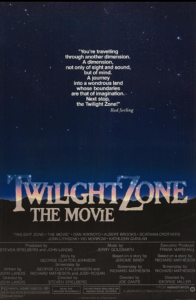
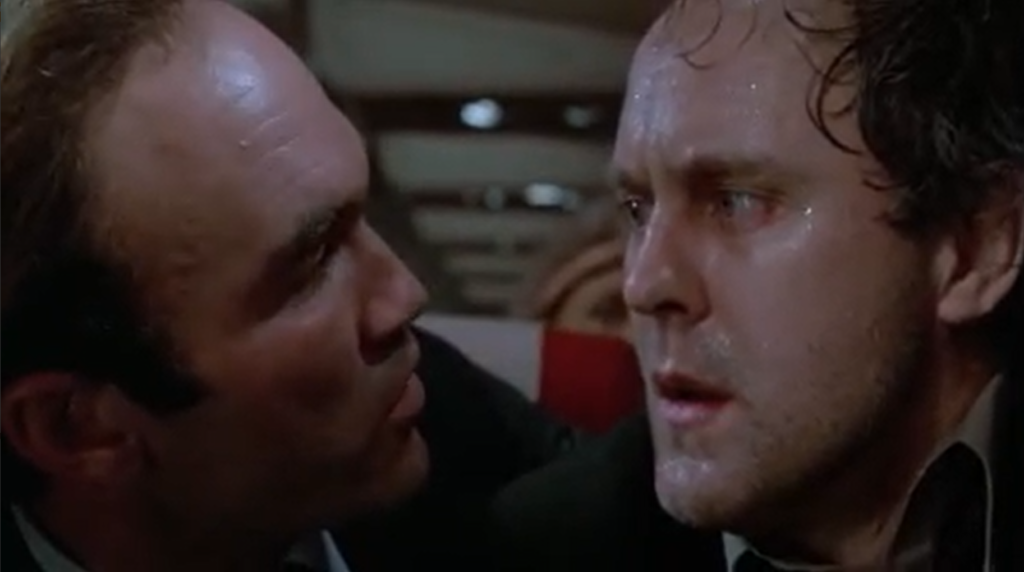
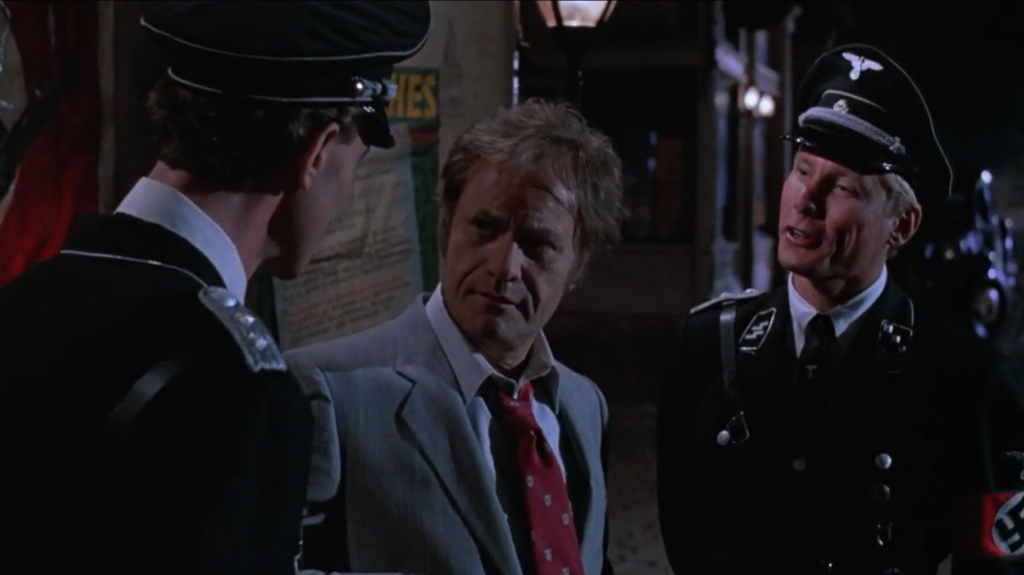
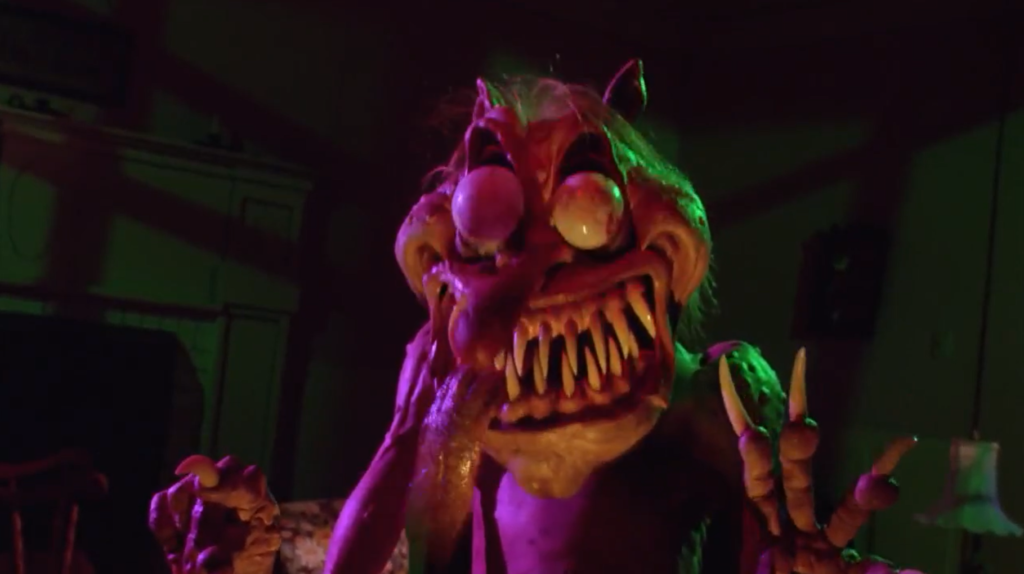
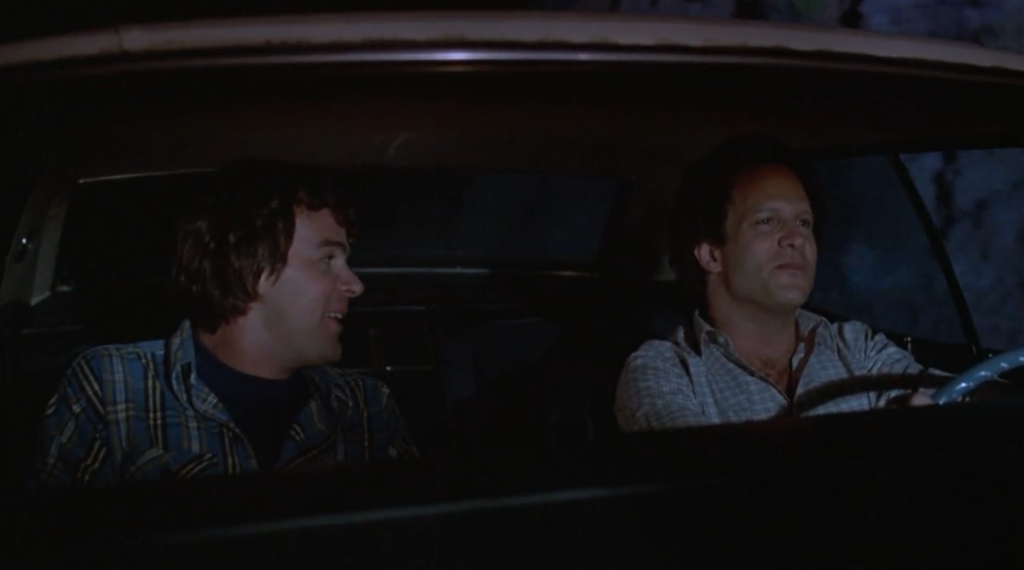
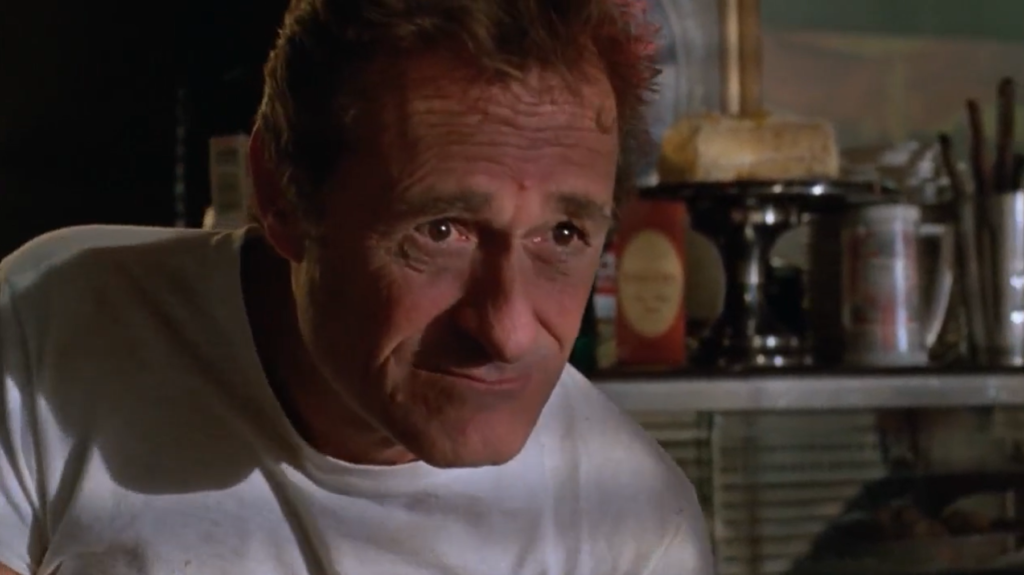
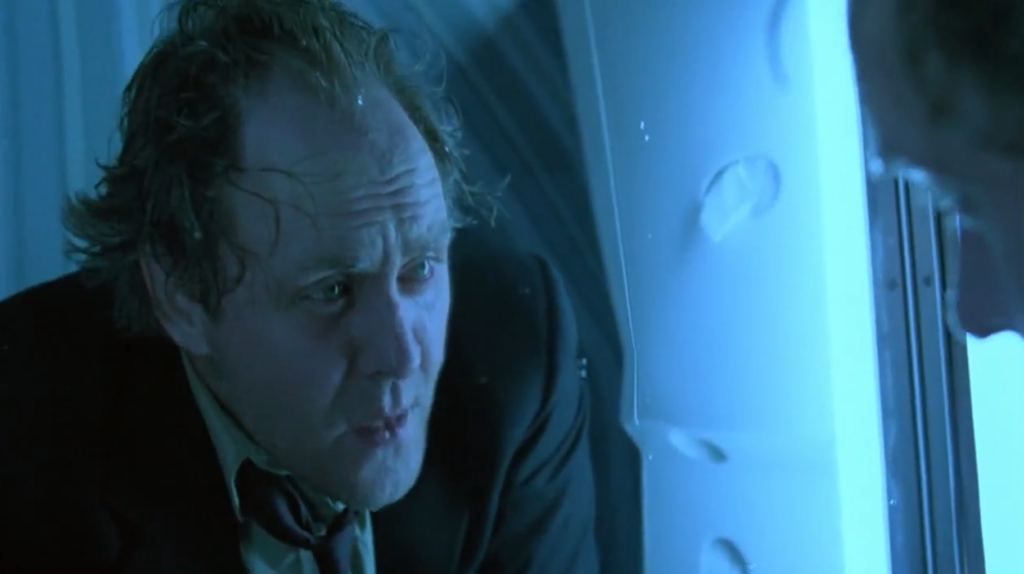
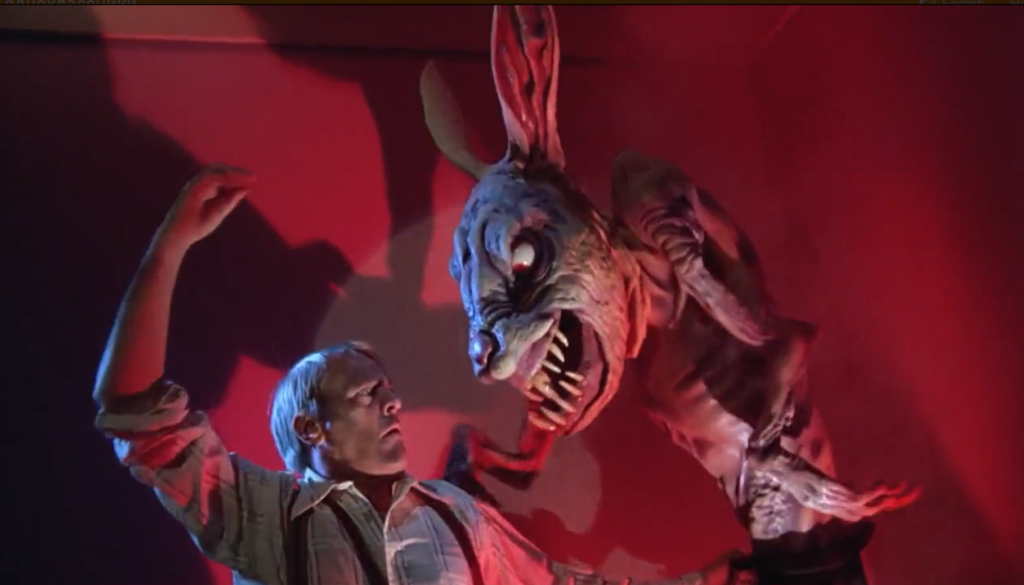
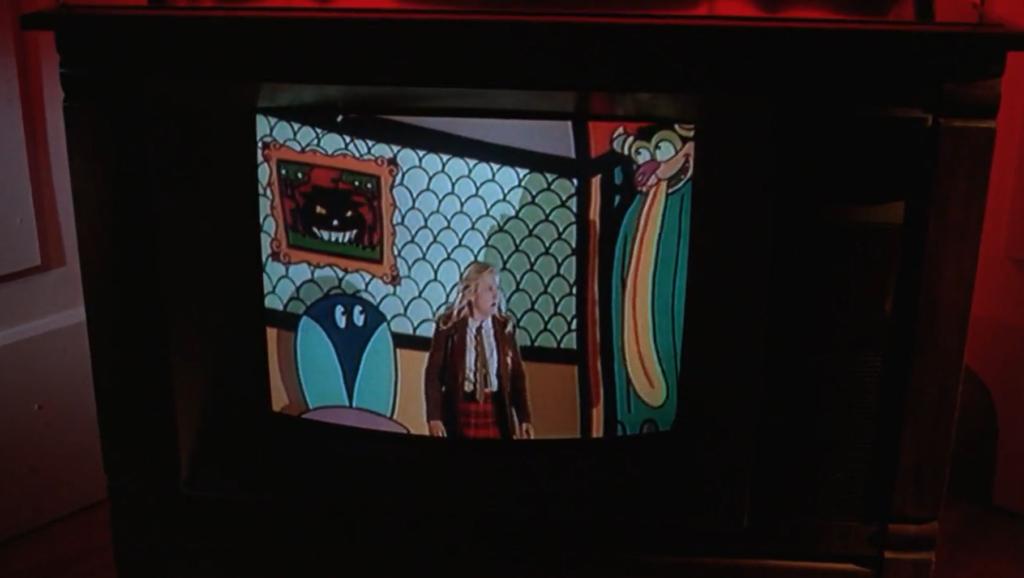
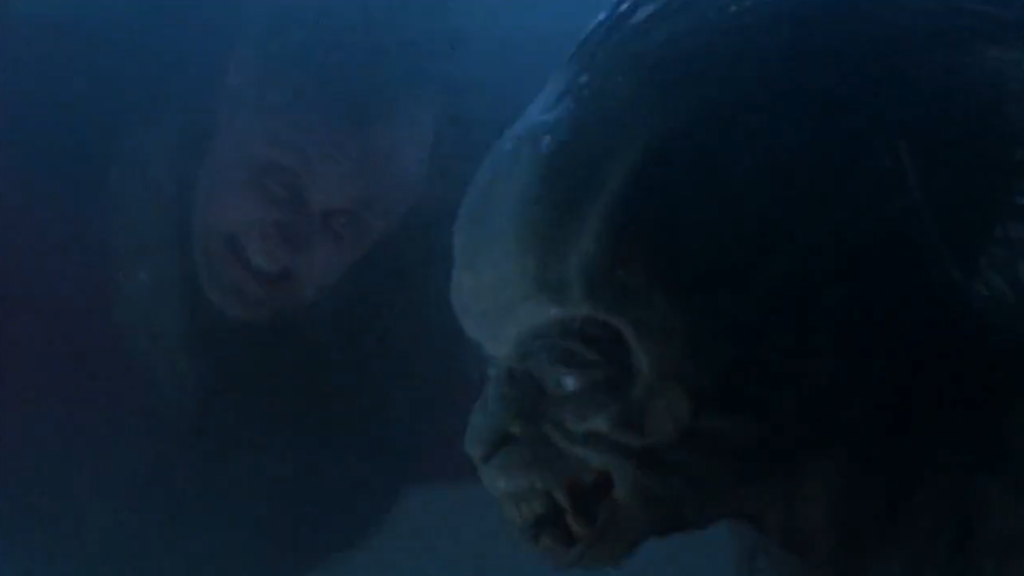
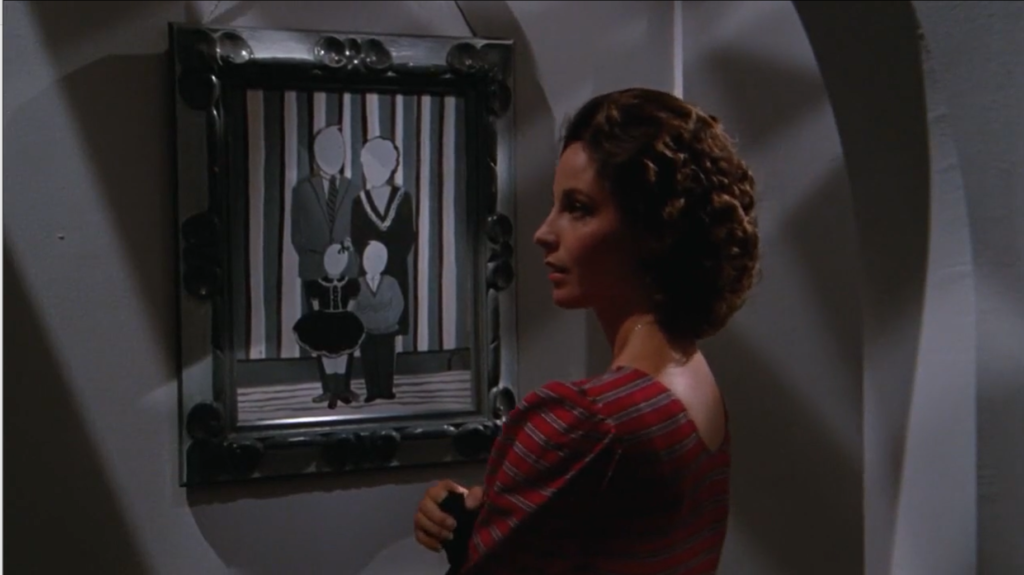
2 thoughts on “Twilight Zone: The Movie (1983)”
A once-must: but only for the wild, cinematic energy of the prelude and the Dante and Miller sequences. (I recommend skipping the other two parts.)
My feeling about this compilation is similar to that of ‘Spirits of the Dead’ – which is only saved by its concluding Fellini story.
Compilations, in general, tend to be mixed bags, so the overall uneven quality here is not all that surprising.
Dante’s episode is some of his best work as a director (and, personally, I don’t mind that the tone veers from the TZ original.) He has a gung-ho cast and I find the Quinlan-Licht relationship appropriately disquieting.
Miller’s work with the finale is also exciting and engaging, with Lithgow in fine, frenetic form.
And, yay, Dick Miller! 😉
⭐️⭐️⭐️ out of ⭐️⭐️⭐️⭐️
Slick, competent fun but nit must see. The Dante segment is my favourite.